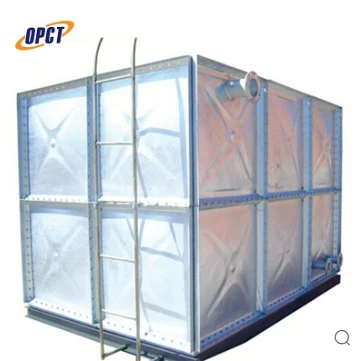


Stainless Steel Water Storage Tanks A Comprehensive Overview
In today's world, where water quality and sustainability are paramount, stainless steel water storage tanks have emerged as a reliable and efficient solution for water storage needs. These tanks not only enhance the safety and quality of stored water but also align with environmentally friendly practices.
Advantages of Stainless Steel Water Storage Tanks
1. Corrosion Resistance One of the greatest advantages of stainless steel is its inherent resistance to corrosion. Unlike traditional materials such as iron or plastic, stainless steel does not rust or degrade over time, even when exposed to moisture and varying temperatures. This resistance ensures that the water remains safe and uncontaminated, making it an ideal choice for both household and industrial use.
2. Hygiene and Safety Stainless steel is non-porous and easy to clean, which helps prevent the growth of bacteria and algae. This feature is especially crucial for potable water storage, as contaminants can compromise water quality. The smooth surface of stainless steel tanks facilitates sanitation efforts and enables quick cleaning, ensuring that the stored water remains safe for consumption.
3. Durability and Longevity Investing in stainless steel water storage tanks means investing in a durable solution. These tanks are designed to withstand harsh climates, and their robust structure ensures they remain intact under various conditions. Stainless steel tanks can last for several decades with minimal maintenance, making them a cost-effective choice in the long run.
4. Aesthetics and Versatility Stainless steel tanks are not just functional; they also offer an aesthetic appeal. Their sleek, modern design can blend seamlessly into various environments, whether industrial or residential. Available in various sizes and capacities, these tanks can be customized to meet specific requirements, making them suitable for a wide range of applications.

Applications of Stainless Steel Water Storage Tanks
Stainless steel water storage tanks have a broad spectrum of applications. In residential settings, they are commonly used for rainwater harvesting and storing drinking water. They can also serve as a backup water supply during emergencies. For commercial and industrial purposes, these tanks are crucial for storing water used in manufacturing processes, cooling systems, or agricultural irrigation.
In addition, stainless steel tanks are gaining popularity in the food and beverage industry, where maintaining high hygiene standards is vital. These tanks are used for storing water, milk, juices, and other liquids, contributing to enhanced product quality and safety.
Environmental Impact
The environmental benefits of stainless steel water storage tanks cannot be overstated. With the growing concern over plastic waste and contamination, opting for stainless steel is a step towards sustainability. Stainless steel is recyclable, contributing to a circular economy. When a tank reaches the end of its life cycle, it can be recycled and repurposed, reducing landfill waste and minimizing the carbon footprint associated with new material production.
Conclusion
In conclusion, stainless steel water storage tanks represent a modern solution to the challenges of water storage. Their corrosion resistance, hygiene, durability, aesthetic appeal, and versatility make them an excellent choice for a wide variety of applications. As we become more aware of the need for sustainable practices, these tanks stand out as not only safe and reliable but also environmentally friendly. The shift towards stainless steel in water storage is a positive trend, emphasizing the importance of quality and safety in our water supply systems. For anyone considering a water storage solution, stainless steel tanks are undoubtedly worth considering.